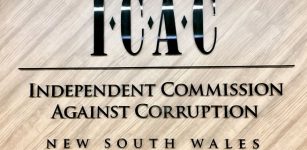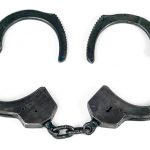NSW Government Forces ICAC Resignation

Independent Commission against Corruption (ICAC) commissioner, Megan Latham, announced her resignation just days after receiving information that she would lose her current position and forced to reapply under a restructure by the Baird government.
Ms Latham had two years remaining of a five year term as the head of NSW’s corruption watchdog. Her resignation is effective as of today, and she intends to return to her former role as a justice of the NSW Supreme Court.
Resignation or Constructive Dismissal?
NSW Premier Mike Baird says there was no direct or indirect pressure from the government for Ms Latham resign. “We respect her decision not to apply for one of the three new Commissioner positions”, Baird said.
However, opposition leader Luke Foley believes the government’s desire to remove Latham was part of the reason for the ICAC restructure.
The changes mean Ms Latham must go through the reapplication process in an effort to secure one of the three new commissioner positions.
This is despite the fact that Latham’s tenure has not yet finished and that, under normal circumstances, she has protections similar to other judicial officers – including that she can only be removed in exceptional circumstances after being afforded due process.
The government has circumvented those protections by amending the ICAC Act, which many believe amounts to a constructive dismissal.
Less Public Scrutiny
The NSW Parliament recently amended the Act to facilitate the appointment of three commissioners rather than one.
Under the new structure, the chief commissioner and at least one other commissioner must agree before a hearing into corruption can be made public. Many fear political considerations will lead to the appointment of conservative commissioners who are unlikely to agree to public hearings.
Ms Latham has criticised the restructure on the basis that it fundamentally compromises ICAC’s ability to hold government to account. “By significantly altering the structure and governance of the Commission, the Bill represents an unprecedented attack on the independence and effectiveness of the Commission as a leading anti-corruption agency,” Latham said.
Political Payback?
Opposition Leader Luke Foley has described Ms Latham’s resignation as “the lowest point” in the 28 years history of ICAC.
Foley sees the government’s move as payback for Latham’s investigation into Liberal Party fundraising before the 2011 state election, which ended the political careers of several of Mr Baird’s Liberal Party colleagues.
Many of those affected in the ‘donations scandal’ have publicly campaigned for Latham’s removal, including the family of former minister Eddie Obeid and business people who were found to have acted improperly to facilitate mining deals.
ICAC Compromised
Former ICAC Commissioner David Ipp believes Latham was indeed forced out, stating “One can see that if attacks are made on the Government, the commissioner is likely to have his or her appointment terminated”.
He sees the restructure as a further attempt to undermine the ability of ICAC to investigate corruption in government, following cuts to the Commission’s funding.
Another former ICAC chief, Anthony Whealy, has described the restructure as “the worst attack on the fight against corruption that I have encountered in my career.” He believes the new appointments are likely to be pro-government stooges who act to stymie the operations of ICAC. “I mean if it happened in a third world country we would say these are the actions of a corrupt government,” he said.
Former NSW director of public prosecutions Nicholas Cowdery agrees, adding that the government is attempting reduce the independence of the anti-corruption body.
Several ongoing were initiated by Ms Latham, including Operation Credo which is a probe into the operations of Australian Water Holdings (AWH) involving senior Liberal Party figures including fundraiser Nick Di Girolamo and former AWH chairman Arthur Sinodinos. While the investigations are likely to continue, Mr Cowdery fears their integrity will be compromised through the transition and new appointments.







